T4K3.news
US corridor reshapes regional influence in Caucasus
A US backed 99 year corridor through Armenia will connect Azerbaijan to its Nakhchivan exclave, expanding Western influence near Iran.
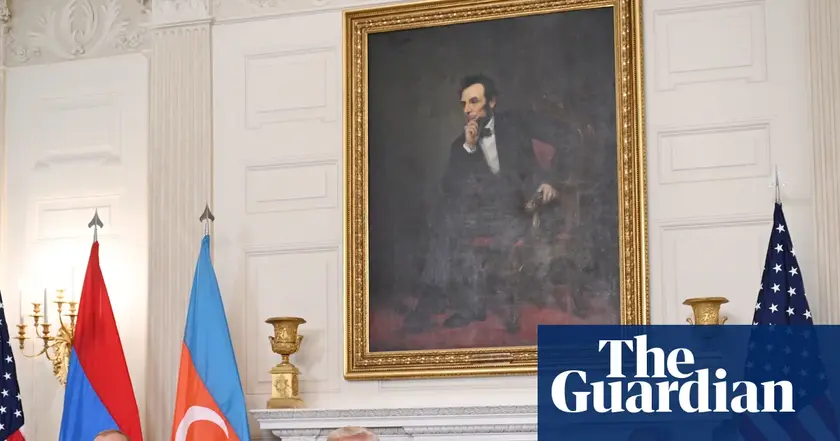
A US brokered peace ties Armenia and Azerbaijan closer and opens a corridor near Iran, shifting regional influence.
Iran and Russia lose from US deal with Azerbaijan and Armenia
In Washington, Azerbaijan and Armenia signed a peace framework after years of conflict over Nagorno Karabakh. A 20 mile transit corridor will connect Azerbaijan to its Nakhchivan exclave and will be operated by a US backed consortium under Armenian sovereignty for 99 years. The corridor will include roads, railways, pipelines and fibre optic lines and the White House says it will enable unhindered connectivity while respecting sovereignty. A key feature is a new level of US presence near the Iranian border, making the region strategically more open to Western influence. The deal also aims to end border disputes while expanding economic links and supporting the Middle Corridor project that links Europe to China via the region.
Iran expressed concern on the matter and warned against foreign interference. Tehran said that any regional deal should serve mutual interests and respect sovereignty. Iranian commentators described the move as a form of regional pressure on Iran. Armenia's prime minister has steered his country toward Western institutions, while Russia remains in Armenia but is coping with Europe focused conflicts elsewhere. Azerbaijan and Turkey appear ready to benefit from deeper cooperation including potential changes to rules on military cooperation with the United States. Armenia is expected to hold a constitutional referendum in 2027, a factor that could shape how the agreement plays out domestically.
Key Takeaways
"Establishing communication networks will serve the security, and economic development of the nations of the region when it is done within the framework of mutual interests, respecting the national sovereignty and territorial integrity of the countries of the region, and without foreign interference"
Iranian foreign ministry statement
"Trump’s direct involvement in the issue of relations between Azerbaijan and Armenia is interesting, offensive and dangerous"
Abbas Mousavi
"We have pre-signed the Peace Agreement"
Ilham Aliyev
"We believe President Trump deserves the Nobel Peace Prize"
Ilham Aliyev
The deal signals a broader turn in regional power dynamics. Washington is testing whether it can build a security and economic framework that reduces both Moscow and Tehran influence. By anchoring Armenia closer to Europe and the EU backed Middle Corridor, the pact nudges Armenia toward Western institutions while giving Azerbaijan a stable transit route to its own exclave. The arrangement places new strategic friction near Iran and could complicate Moscow’s ability to shape events in the South Caucasus. Domestic politics in both Armenia and Azerbaijan could test the agreement if constitutional changes spark opposition or if the peace process stalls. Iran faces a choice between accepting a Western backed framework at its border and risking further isolation, while Russia must weigh its pragmatic interests against a shift away from a sphere where it previously held sway. The coming months will show whether the economic promises translate into real gains and whether regional actors can sustain trust without reigniting old tensions.
Highlights
- A border corridor could redraw the regional map
- Power shifts come with a price tag for all sides
- The prize here is influence not land
- Diplomacy now comes with a US border presence
Political and regional stability risk
The agreement involves foreign influence near Iran and shifts in regional power. Domestic constitutional issues in Armenia could affect ratification. The deal may trigger mixed reactions in Iran and strengthen Western influence in the South Caucasus, inviting scrutiny from Russia and regional opponents.
The region watches closely to see if a high level pivot can survive political tests at home and abroad.
Enjoyed this? Let your friends know!
Related News
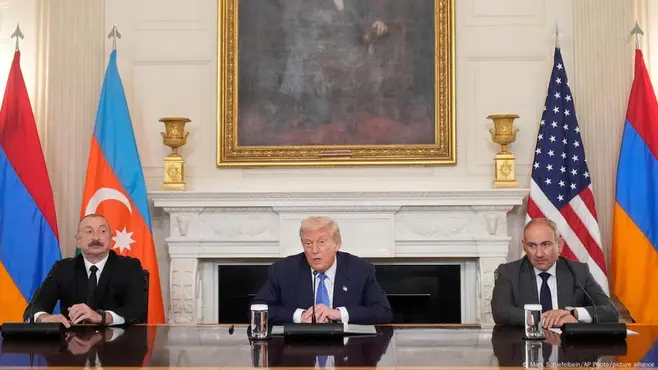
Caucasus peace deal signed
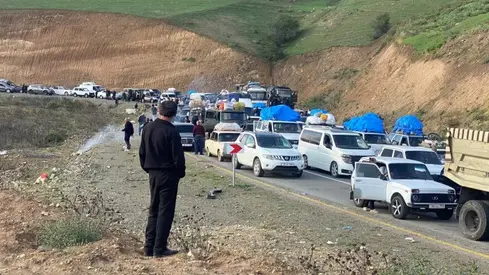
Trump Route linked to Caucasus peace talks
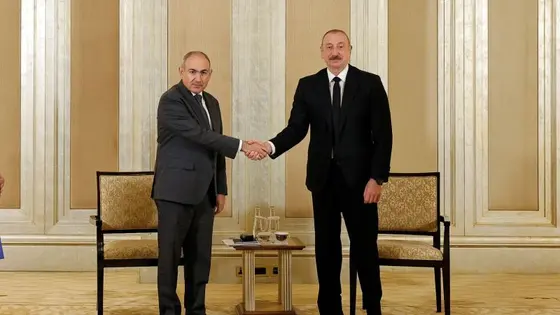
Trump pushes Armenia and Azerbaijan peace pact with US transit corridor
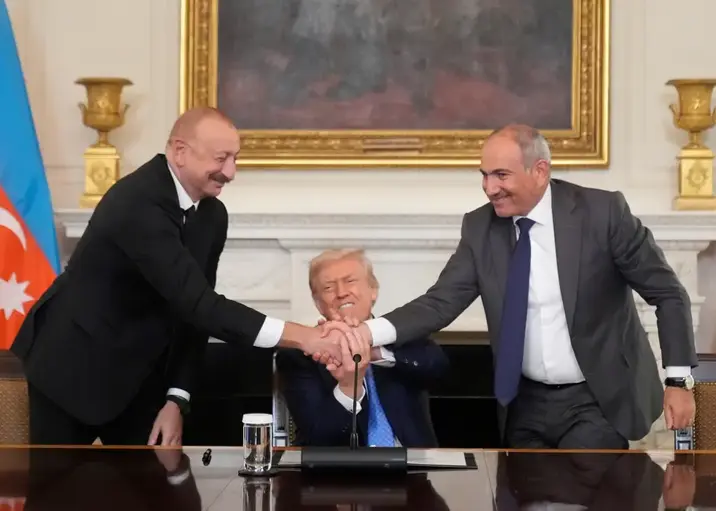
US links transit route to leverage in Caucasus
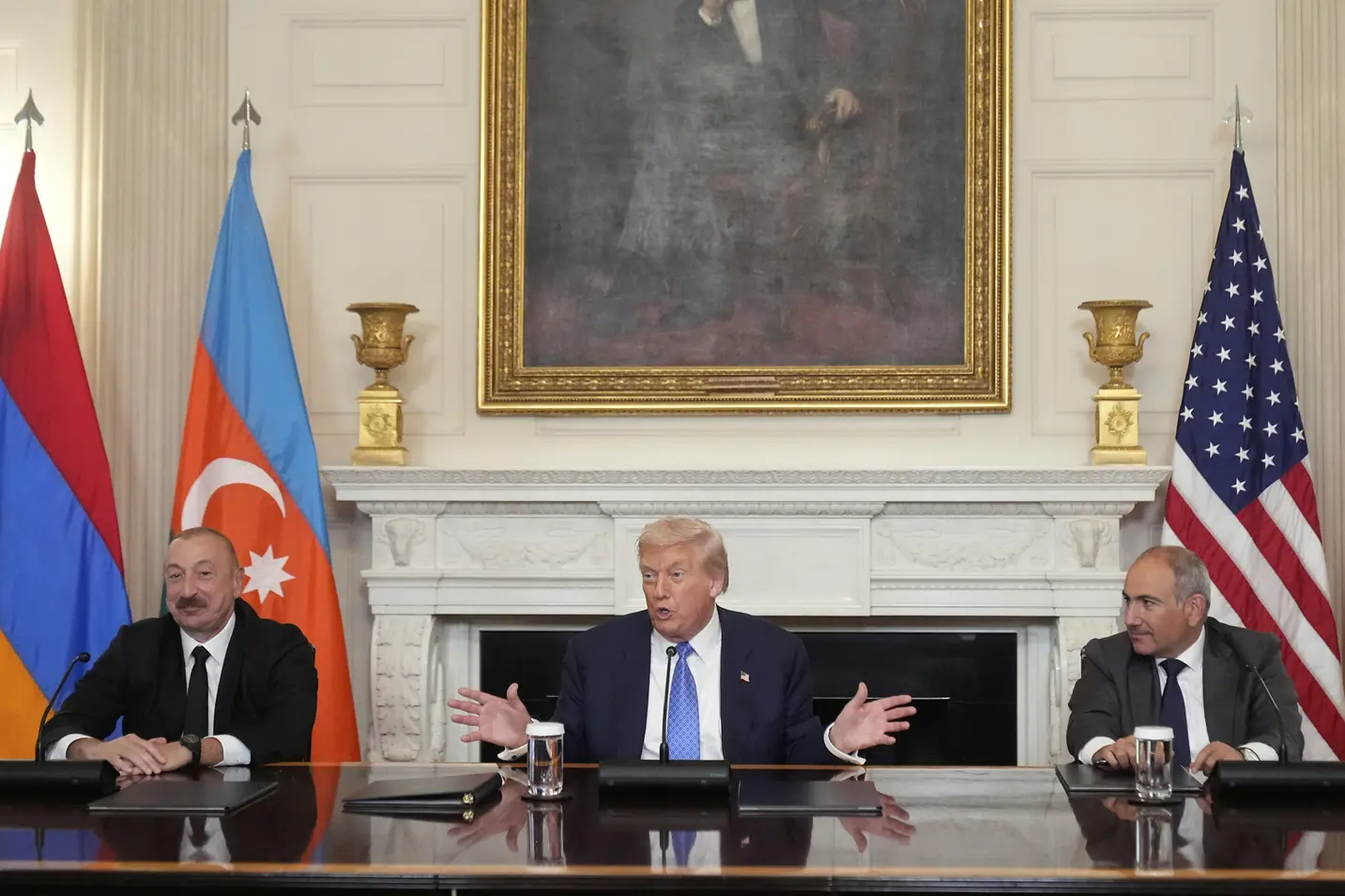
Iran threatens Trump corridor in peace deal
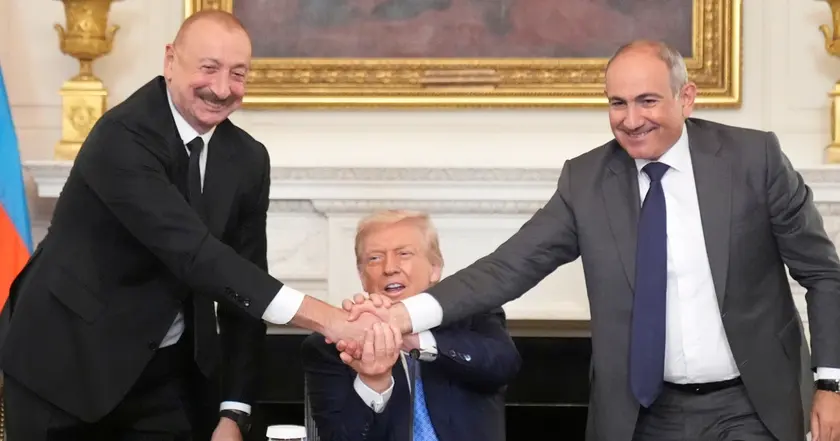
Peace deal signed at White House
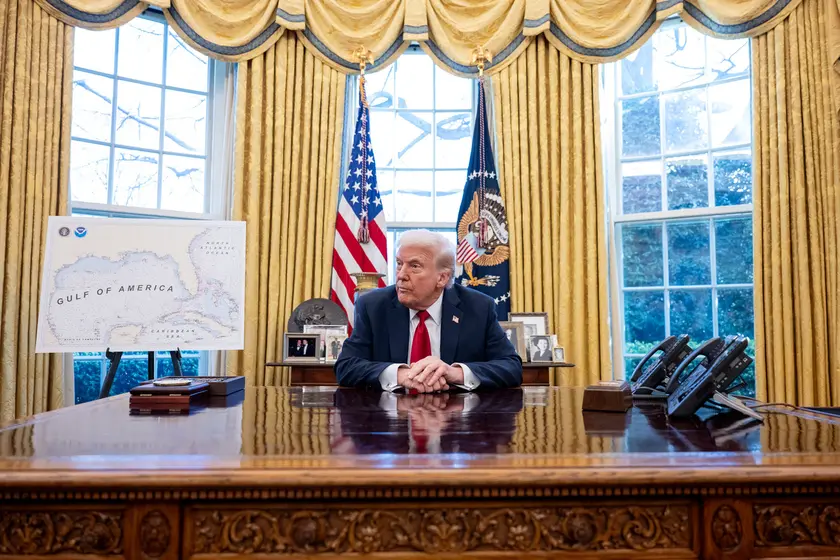
Historic Peace Summit Held for Armenia and Azerbaijan
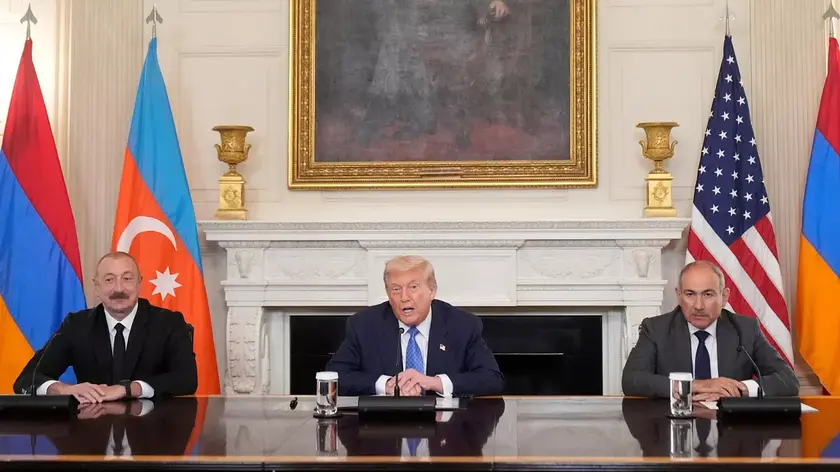
Peace agreement signed in Washington
